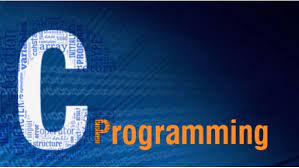.svg)
.svg)

C Programming will increase career options. Become a better dev in other languages by learning C. Pointers explained
For Computer, IT, Computer Science, Electronics Engineers
Course Type :
₹ 5998
Topic 1 | Introduction about C Programming
Introduction about C Programming
Topic 2 | Variables & Data Types in C Programming
Variables & Data Types in C Programming
Topic 3 | Constant & Literals in C Programming
Constant & Literals in C Programming
Topic 4 | Storage Classes & Operators in C Programming
Storage Classes & Operators in C Programming
Topic 5 | Conditional Branching Control Statements
Conditional Branching Control Statements
Topic 6 | Conditional Looping control statements
Conditional Looping control statements
Topic 7 | Unconditional Control Statements in C Programming
Unconditional Control Statements
Topic 8 | Array & String Operations in C
Array & String Operations
Topic 9 | Pointers & Call by Value functions
Pointers & Call by Value functions
Topic 10 | Compound Data Types
Compound Data Types
Topic 11 | Preprocessor Directives in C Programming
Preprocessor Directives
Topic 12 | Multiple file compilation
Multiple file compilation
Topic 13 | Dynamic Memory Management
Dynamic Memory Management
Topic 14 | compiler & creating libraries in C Programming
compiler & creating libraries
Topic 15 | Project
Project
Copyright © 2025 ABCTrainings - All rights reserved